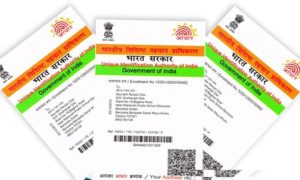A bounced cheque is one of the most prevalent offences affecting the financial industry. A cheque is said to have bounced when the payee presents it to the bank for payment and the bank returns it unpaid with a memo of insufficient funds. According to Section 138 of the Negotiable Instruments Act (NIA) of 1881, a bounced cheque is an offence punishable by a fine of up to double the value of the cheque or up to two years in prison, or both. There can be various reasons for cheque bounce, but if one of the reasons is insufficient funds in the account of the drawer, it is considered a criminal offence by the court. In such cases, banks reject the cheque with a return memo stating insufficient funds as a reason. Other reasons for the cheque bounce can be the wrong signature of the drawer, overwriting, wrong amount, wrong date and others.
Read More:– Another explosion on Amritsar’s heritage street near Golden Temple, 2nd in 24 hours
The bank or the payee in this case can issue a cheque bounce notice to the drawer stating that they cannot complete the payment due to insufficient funds in their account. Then, it gives the drawer 15 days from the date of receipt of the notice to pay the cheque amount. The payee may file a lawsuit against the drawer within 30 days if the drawer still does not reimburse the cheque amount.
Read More:– Hikes to open pay policy: Companies fine-tune appraisals
This activity comes under the bailable offence, according to Indian law. Therefore, the drawer cannot be jailed until the final verdict of the court is out. Your first step after you are served with the cheque bounce notice should be to pay the cheque amount to avoid any further legal proceedings or you can reply to your legal notice for defence. But before applying, it is advised that you consult a lawyer who deals with such issues.
If the accused drawer admits guilty to the cheque bounce after the trial provided it has reached that stage, then they may be subject to a legal penalty from the court as well as multiple fines from banks and other institutions. A bounced cheque can also affect your credit score, hence giving you a big disadvantage in getting loans from banks or other financial institutions.
Read More:– Beware of new WhatsApp scam: Hoax calls from International numbers on the rise
Though, the court has the right to end the case if the drawer is prepared to pay the cheque amount by the deadline along with any applicable interest and costs.





































